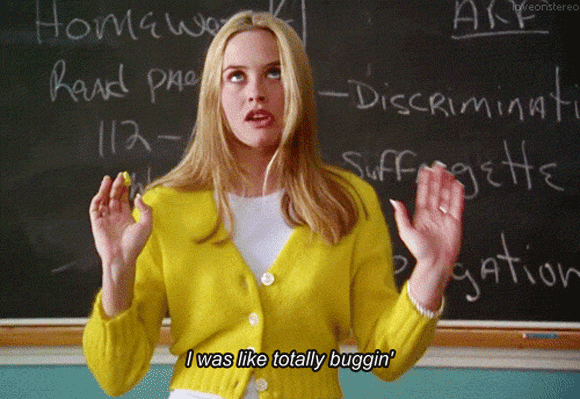AI For Kids, Language Barriers & Working Class Startups
5 in 5 - Brave & Heart HeartBeat #196 ❤️
This week we’ll be talking AI’s growing influence in two unlikely sectors and looking at the different challenges faced by the newest and the oldest generations in the workplace.
Plus, where are all the working class startups (apart from us)?
Let’s get into it.
Were you forwarded this? Not a subscriber? 👉 Sign up here
#1 - Is AI The Last Thing The Gambling Industry Needs?
Probably yeah, but it’s not going to stop them using it.
The first company to apply AI to gambling is EquinEdge, which uses AI to analyse data to provide metrics on horse racing. The algorithm crunches info like horse performance, track conditions, jockey and trainer statistics to tell the user how probable it is that a certain horse will win.
EquinEdge says that their tech does the hard work, but the gambler still gets to do the “fun part” – deciding how to interpret that metric. The CEO of EquinEdge says that AI had “made it easier than ever” to offer consumers the data and analysis skills that used to be reserved only to Pros. In the same breath, he disputes the idea that this could make gambling more addictive.
He falls back onto the idea that gambling addiction is a “disease” like any other, and that those who suffer from it aren’t going to be affected by his company making gambling “less boring or challenging”.
Does that seem true to you? No, us neither.
Another use of AI in gambling technology is similar to the infamous TikTok algorithm. Betby, a company that supplies technology to gambling firms, have just launched AI tools that will priorities relevant content for users based on past activity, similarities with other customers, and sports trends.
One former gambling addict interviewed on the subject of AI tech in gambling noted that online gambling “exacerbated” his habits due to the solitary nature and always available aspects of it. Add to that equation technology that makes gambling feel easier and that keeps serving up the stuff you like, and you’ve got a pretty potent mix.
There is an obvious ethical dilemma here in whether the pursuit of profit is being prioritised over the welfare of people who are prone to addiction, but that can be said about the gambling industry as a whole, and they’re still going…
#2 – AI Takes On Kids Entertainment?
Anyone who’s ever watched In The Night Garden will be surprised to know that it isn’t complete nonsense generated by AI, but the next big kids entertainment hit might well be.
Creating kids content using AI is being touted online as the latest way to get rich quick on the internet, according to a rush of YouTube tutorials claiming you can earn fifty thousand dollars per month.
The tutorials offer roadmaps on how to create simple animations in a matter of hours, using tools like ChatGPT, voice creation tools like ElevenLabs and Murf AI, and Adobe Express Ai features to automate scripting, and audio and video production.
This might sound harmless, but it really isn’t. Some fear that YouTube and parents across the globe are ill prepared for the wave of AI-generated kids content to come, including neuroscientist Erik Hoel.
He recently watched some of the tutorials, along with some videos he suspected to be AI created, and was so unsettled that by what he calls the “dystopian” nature of kids in front of iPads watching “synthetic” content, describing them of being “deprived of human contact even in the media they consume.
One channel called Brain Nursery Egg TV puts out videos directed at kids that are so weird - including floating eyeballs and melting colours to a soundtrack of babies laughing and robotic voices saying “YouTube” - that if it wasn’t AI-generated it could be “one of the greatest and most underrated works of surrealist video art in recent memory”.
Well, I just wouldn’t let my kids watch that, we hear you exclaim. Not that easy.
The videos are made to look like other popular kids channels, so that a parent glancing at the video may confuse it with one they’re familiar with. Well known characters are parodied and the keywords include misleading topics like “Disney Junior” and “creative”.
So what do you do? We’re no experts, but we’d say stick to reruns of the Teletubbies for now.
The newest generation to enter the working world value individuality and authenticity above all else, and this is not going down too well with the current professional class.
Back in the day, conforming to the “way things are” in the workplace was automatic. Being suited and booted, sucking up to the boss and putting your most “pro” foot forward at all times went without saying.
The new generation of workers, however (Gen Z), they’re asking why?
Academy of Management scholar Christopher G Myers, says that due to new technologies and shifting values, younger people want their work and personal identities to be the same. They don’t want to have to put on a fake work voice and a fake persona – they want to be natural, and themselves.
In some cases, this isn’t working out for them. The example given in this BBC article is of a new graduate who landed a job at a hedge fund, and was unfazed by the challenge despite being a decade younger than everyone else at the company.
Although she felt that she had a good relationship with her clients, noting that she preferred being “personable” to being “austere”, she ended up being fired. Her boss explained to her that she didn’t fit the brand of the company, and that she used the word “like” too much… Deal breaking stuff, apparently.
The sociological view is that for a generation who were told to be fully themselves and embrace what made them different, and have been less exposed to formal communication after a life online, the disconnect between that and the corporate world is putting them at a disadvantage when it comes to getting ahead in the workplace.
Professionalism is definitely an important skill, and we agree that it should be taught more in schools and university settings so that the next generation don’t get shunned at work, but here’s another idea – managers and bosses should be coaching the next generation, taking them under their wing rather than kicking them out in the cold for using too many filler words.
However, the old guard also shouldn’t forget that being likeable, fun and high energy are also skills that can benefit communication.
The “austere” corporate guys could probably take a lesson or two from the “influencer generation” – after all, they’re not called influencers for nothing.
#4 - Is The Tech Industry Ageist?
We know that tech is an industry always looking for the next new thing, does that count for their employees too?
It’s a known and proven stereotype in the industry – in 2020, IBM were condemned for engaging in age discrimination by pushing out older workers to make room for younger ones – and is described as an open secret.
Even when companies aren’t as blatant as IBM, ageism in tech can lurk behind common ideas such as culture fit – especially if that culture is referring to young white men.
The result is that older tech workers are the ones getting the shortest straw during the current wave of layoffs for a couple of reasons.
Firstly, the consistent growth that we’ve seen in the industry in recent decades has meant that many more senior workers in tech have much less experience with job hunting – for years they could easily hop between jobs in their network, often being poached by recruiters.
The power has now shifted into the hands of the employer, as the tech industry tries to course correct after a few years of over-hiring – and older workers may be first on the chopping block due to these inherent biases.
In addition, the work landscape has changed. Networking now includes a lot of social media work on LinkedIn, and with four generations now in the office, many of them looking for work in an industry which was until now in constant growth, it’s getting a bit crowded.
How will AI change things? Will the boom in the industry make more room, or make the market even narrower?
#5 - Where Are The Working Class Startups?
The start-up world is full of privilege, with working class entrepreneurs being few and far between, and it’s not just about the money, as this article in The Grocer magazine shows.
According to the UK’s first professor of social mobility “working-class founders face material and cultural barriers compared with their more privileged peers”. The material barrier being the first big one -money. Especially if you’re starting a business without having an already established career behind you.
To start a business you need capital, and the figures show that most of that capital is out of reach for working class entrepeneurs. A 2022 report from startup incubator Mission Ventures showed that most of the the 50 businesses audited spent £20,000 in their first year, and in 55% of cases that money came from personal savings, 17% from friend and family loans, and 12% from friend and family investments.
A quote from the founder of jam company Fearne & Rosie is telling on this subject. She says, “where I’m from people make £20K a year, they don’t invest £20K a year.” She says she isn’t surprised by her business’ success, she always knew it was a good idea, what she has been surprised by is how difficult it is to build a business from scratch.
For example, when it comes to founders taking no wages for a year, that simply wasn’t possible for her, as it isn’t for many people.
It’s not just the actual money that can make it easier for more privileged entrepeneurs, it can be more sublte. For example being able to live rent free with parents, the ability to take greater risks, or even being closer to London and potential meetings – all reasons noted in the book “The Class Ceiling – Why It Pays To Be Privileged”.
Another subtle thing that may be putting less privileged entrepeneurs on the back foot is a lack of “polish”. Tehcnically undefinable, the word is often used in social mobility circes and by business, but when decoded it is basically whether someone “looks and sounds the part”. And the “part” is basically what you get taught to be at private school.
Class diversity in the start-up world can only be a good thing, look at us.
Brave & Heart over and out.
Bonus
Black Box
The Guardian’s new podcast Black Box is an exploration of the strange new world of AI we’re living in - from the algorithms who accuse real people of crimes, to the people who fall in love with them.
To find out more on how you can retain your top talent, or how we can help you with digital solutions to your business and marketing challenges, check out our case studies.



